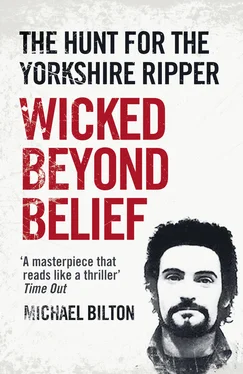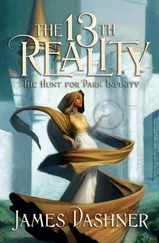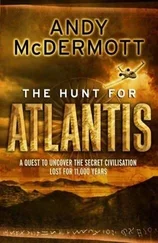At work he showed the obsessive behaviour traits familiar in many senior detectives: long hours, a devotion to detail and the ability to sit through the night poring over reports, aided by cigarettes and whisky. But his home life provided an important kind of relief from the stresses and rigours of crime and criminals. He was devoted to his wife, who came from farming stock, and their three other children, two boys and another girl. The youngest, Christopher, was born when Oldfield was forty-one. They put the money aside to have them educated privately in Wakefield and all three offspring took up professional careers in, respectively, the law, accountancy and dentistry.
For a good many years the Oldfield family had to move with his job. They lived in a variety of police houses across the West Riding, in Dewsbury, Keighley and Wakefield. In 1968 they bought their first home, a bungalow high up at Grange Moor on the fringes of Huddersfield, 750 feet above sea level. From there it was a relatively quick journey down to the M62 or M1 motorways, which gave him easy access to most places within the force area. His journey to his office at Wakefield was straightforward: down the A642 and through Horbury into the city.
At home when the children were young he played with them and shared their interests as best he could. In truth the family did not see a good deal of him, but one almost sacrosanct occasion was lunch on Sunday, when the Oldfields ate en famille. Most weeks Oldfield checked the fish in the ornamental pond in his front garden, and at weekends he would poke about in his vegetable patch where he grew some of the family’s produce. At the outbreak of the Ripper killings he had just started work on building a greenhouse behind his garage. ‘He loved getting out of suits and into his old clothes to go out into the garden,’ his wife reflected. He also amused himself with old blacksmith’s and tinsmith’s tools, getting the rust off and restoring them to their original condition so he could display them in the home.
Margaret was a keen cook, and like many women from farming families she was good with the pastry and baking. When a police colleague occasionally visited the bungalow, she would bring out the results of her home baking with coffee on a tray, then discreetly take her leave so as to allow the men to discuss police business. Margaret Oldfield saw her role as keeping things normal at home. ‘If anything came up on television we would just laugh it off. We tried to keep quiet about the things he was involved in, so that he didn’t have to talk about it at home.’
His abiding sense of justice and personal knowledge of the fragility of childhood demonstrated itself in one of his inquiries as a detective chief inspector earlier in his career. He was brought in, again as an outside officer, to investigate criminal allegations of sexual assault against two young girls by a uniformed police officer. He particularly asked for a detective sergeant called Dick Holland to act as his bagman during the delicate inquiry. Holland had three daughters of his own. After some while spent gathering evidence, Oldfield determined that the officer was guilty, but they would have grave difficulty mounting a successful prosecution. He told Holland: ‘If we take this to court these girls will not stand up in court in giving evidence against a police sergeant and they will break down. It might ruin their lives.’ Oldfield had had a long talk with the girls’ parents. He wanted to ensure that the police service was not stuck with an officer who had been acquitted on a technicality of a serious offence against young girls. ‘What we want to do is get rid of this bastard. The girls have suffered enough. If they break down in court and he is reinstated, what are we left with?’
‘His whole attitude was that the police service had to get rid of this bad egg, but he was not having anything adverse happen to these little girls,’ Holland recalled. ‘Another investigator may have done it by the book and it would have gone all the way to court.’
While Oldfield was deliberately reticent at home about the crimes he was investigating, it was impossible for his wife not to see how he could be deeply affected by his work, especially when tragedy struck families with children. One night in 1974 the phone rang at 1.30 a.m. It was at the height of a series of IRA terrorist outrages in England. He answered the call and then put the phone down, telling Margaret: ‘They’ve blown up a bus.’ He got dressed and headed for the nearby M62, where a bomb had exploded on a coach carrying army personnel and their families back to Catterick Camp in North Yorkshire. He then led the major inquiry into the murders of a dozen people. Among the dead were two small children. He had witnessed for himself the horrendous aftermath of the bombing. Body parts were spread all over the carriageway. The carnage sickened him.
During murder inquiries, Oldfield always tried to spend as little time as possible at the post-mortem, perhaps as a result of what he had seen aboard HMS Albatross as a young man. He couldn’t bring himself to spend too long at the autopsies on the coach bombing victims, telling a close colleague that the mortuary resembled ‘a butcher’s shop’. Dick Holland, by now promoted to detective chief inspector, remembered: ‘He didn’t like post-mortems. He didn’t shirk his duty, but he did have the minimum contact with the bodies. He was a bloody good commander and gave the right orders [at the scene of the outrage], things like that came naturally to him. The sight of the children blown apart affected him like it affected all of us.’
Oldfield was to describe the coach bombing as the most horrifying scene of mass murder in his experience. It confirmed his view that terrorists deserved capital punishment. ‘I had the misfortune to see the terrible injuries inflicted on the victims … As long as I live I will never forget the grievous injuries suffered by those two children.’
After the first news of the coach bombing, his family didn’t see George Oldfield for several days. A week or so later he appeared to have developed a phobia about alarm clocks. ‘He told me to get rid of the clock in our bedroom,’ said Mrs Oldfield. ‘I know that incident affected him because he simply couldn’t rest, couldn’t sleep properly if he heard the ticking noise of the clock. He couldn’t stand the sound of the ticking.’
Several weeks before the midsummer of 1977 a key decision had been made by George Oldfield. If there was another murder in the Ripper series, then he would take command as senior investigating officer and continue with his role of ACC (crime), doing the two jobs back-to-back. He didn’t have long to wait. On Sunday morning, 26 June, nine weeks after the death of Patricia Atkinson, a woman’s body was found on waste ground in Chapeltown, Leeds. The discovery was made by two young children. The fact of the body being found in an area frequented by prostitutes was enough to justify a call to Oldfield. He immediately told the control room at force headquarters to contact Dick Holland at home. By now a detective superintendent, Holland was deputy head of CID for the Western Area, operating out of Bradford. Preparing to don an SIO’s hat, he wanted a senior detective at his side who knew how the old West Yorkshire force investigated murders.
‘He knew me and the way I worked, and he knew I would work the West Yorkshire system,’ says Holland. ‘This wasn’t going to be my murder – it was Oldfield’s, but George would be able to keep nipping off to do his job at headquarters and leave me there, knowing his will would be carried out. He regarded me as an extension of himself. If he had left Hobson in charge, it would have been done Hobson’s way.’ Holland was Oldfield’s protégé – they were West Riding men and there was mutual respect and trust. Holland, then a divorcee, would become one of the few officers invited to Oldfield’s home. The two thought alike. In Holland’s view they were ‘a bit like bookends’. A close colleague once told Holland the only difference between him and Oldfield was that, ‘George’s answer to stress and problems is a bottle of whisky. Yours is to go out and buy a steak or a meal.’ Holland – a giant of a man who turned out rain and shine for the force rugby team – was a non-smoking, non-drinking foodaholic. ‘I knew how to switch off and I enjoy the company of women. George was set in his ways. You weren’t going to change George,’ he said.
Читать дальше












